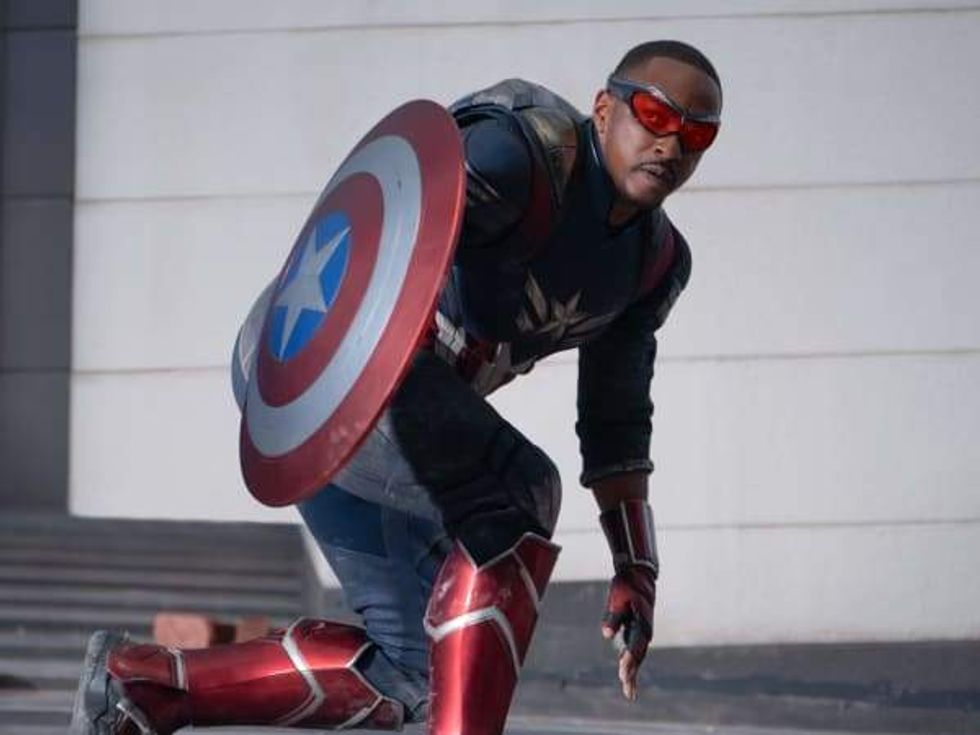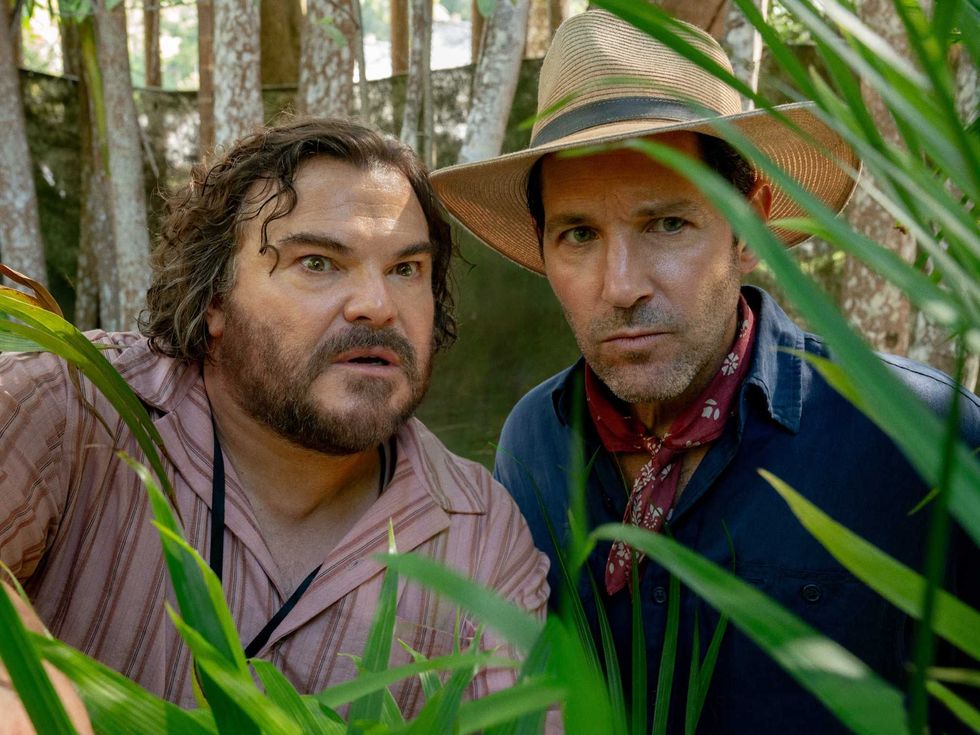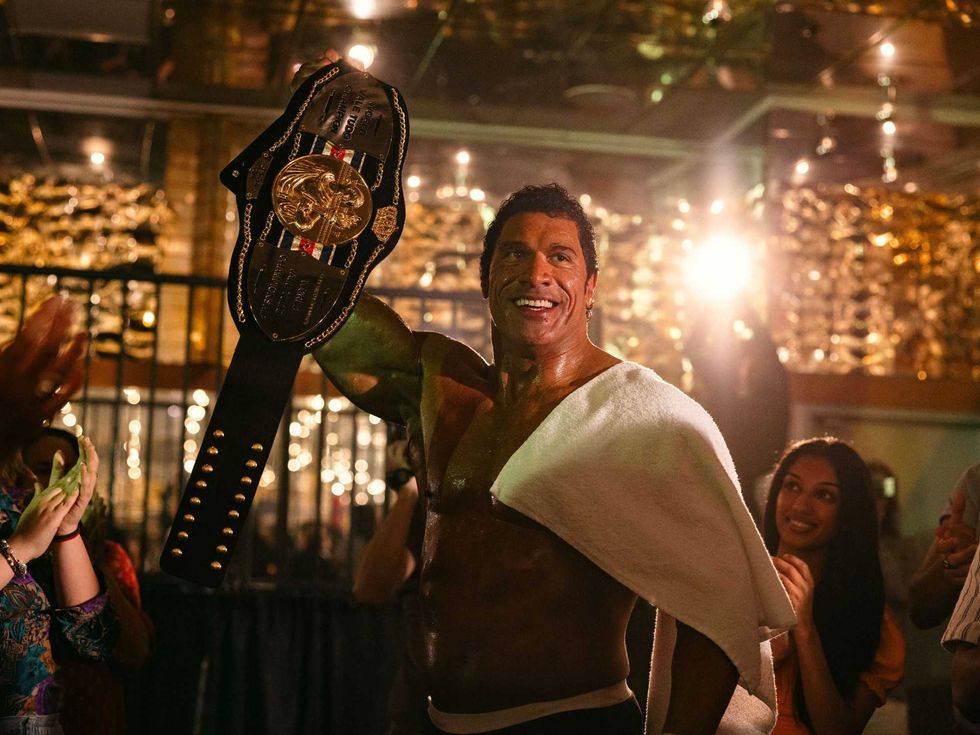catfight!
The “Kittywood” cat-roversy: How vids go viral and why it's hard to defineonline originality
 Video Still from Joe Nicolosi's Kittywood
Video Still from Joe Nicolosi's Kittywood Video still from Catvertising
Video still from Catvertising
Kittens in boxes. Kittens fighting the air. Kittens riding in cars.
Got your attention? Thought so. It’s hard to resist clicking a link that promises a mental break from more substantial online activities in the form of inane — but impossibly cute — cat hijinks. At first, it was kinda funny how fast cat-centric videos (and .gifs, and photos) flooded the Internet. Now, it’s just a fact that featuring some fur in your video earns tons of hits.
Austin filmmaker Joe Nicolosi knows it. Well known for his work producing the elaborate pre-show bumpers for the past two SXSW festivals, Nicolosi is no stranger to viral video success. A New York native, he’s a former contributor to the acclaimed Channel 101 show, a monthly series that lets audience members vote to “renew” or “cancel” submitted web series pilots.
Then, in 2009, Nicolosi had an unexpected hit with “Star Wars: Retold,” a clip featuring a friend (who’d never seen the series) explaining the plot of the cult classic. The viral video was eventually seen by George Lucas himself, who selected it for top honors in the San Diego Comic Con Star Wars Fan Film Challenge.
Cat video connoisseurs immediately noticed similarities between “Catvertising” and the already popular Austinite-created “Kittywood.” Mashable dramatically declared an official cat fight.
This past August, Nicolosi collaborated with a team of Austin actors to create “Kittywood Studios,” a mini mock-umentary about the (unfortunately fictional) studio behind some of the world’s most well-known cat videos. “At any given time, cat videos make up about 30 percent of all internet traffic,” explains the studio’s Senior Vice President. “We here at Kittywood Studios seek to capitalize on that by mass-producing kitten and adult feline-focused videos for the World Wide Web. We make cat videos.”
Cat who likes to watch the toilet flush? Theirs. Kitten attacking a watermelon? Also theirs. Keyboard cat? “Stuck in development for quite awhile,” actually.
Proving Nicolosi’s point that cats = internet gold, “Kittywood” quickly made the media rounds. The video was reposted on hundreds of sites, from the Huffington Post to the Guardian UK. As of Dec. 1, the video had more than 621,000 views. The clip’s trajectory from local Texas labor of love to international meme was almost immediate, and Nicolosi was happy with its success — for a few weeks, at least.
Major cat-roversy
On Nov. 10, a Toronto-based ad agency called john st. uploaded a YouTube video called “Catvertising.” It’s a 2.5-minute glimpse into the office of an ad agency that creates — you guessed it — viral cat videos.
Cat video connoisseurs immediately noticed similarities between “Catvertising” and the already popular “Kittywood.” Mashable dramatically declared an official cat fight:
"Welcome to meme fight club. In the red corner: a YouTube short about a new movie studio devoted to making cat videos. In the blue corner: a YouTube short about a new advertising agency devoted to making cat videos. Gentlemen, sharpen your claws."
john st. denied any intentional copy-catting (sorry, couldn’t help it), claiming that they hadn’t even seen “Kittywood” before the controversy. Since then, john st. has posted two more “Catvertising” clips which, like the first , are funny and feature adorable felines. They’re also ads, for john st. clients Mitsubishi and Tetley.
Nicolosi was not happy. Not only was john st.’s concept suspiciously similar to his, but they were refusing to give credit and profiting from the whole situation? He decided to take the Internet feud to the next logical level: he posted about it on Reddit:
"Their video goes so far as to lift specific visual gags from my short. I like to give people the benefit of the doubt, but the similarities are too much for me to suspend my disbelief. Am I nuts? The funny thing is I originally came up with the premise thinking about how so few things in my life aren’t part of some massive corporate machine. Now, an agency has ripped off my video for purely capitalistic reasons. The experience has left me pretty bummed out."
When the Internet makes immediate production and publishing possible, anyone's able to broadcast their reactions to current events and share their creative efforts. And when so many people are putting a spin on the same idea, overlap is inevitable.
It’s true that the videos are strikingly similar; most notably, both take a tongue-in-cheek look at the legitimate industry that’s sprung from some of the Internet’s less intellectual trends (the Cheezburger network, for example, born from the early web “I can has cheezburger?” photo meme, is now a multi-million dollar set of sites — and several print books).
Is there such thing as originality online?
Last month, comedy sites College Humor and Funny or Die found themselves in a similar situation. Both released original videos lampooning the Occupy Wall Street movement. Both featured millionaires twisting the message and “occupying Main Street.” Both took shots at mainstream media networks. The actors in each were almost identical. And? The videos were released on the same day.
Because of the timing, it was obviously a case of two writers' rooms coming up with the same accessible, topical idea. Humor blog Splitsider was quick to diffuse any rising tempers:
"It's pretty amazing that both sites released such a similar video on the same day. One of them must have stolen the others' idea, written, cast, produced, shot, and edited their competing video in a matter of mere hours! Just kidding, it's obviously a case of parallel thinking and both sites skewering a ripe-for-the-skewering issue with a classic role reversal."
Great minds do think alike, after all. When the Internet makes immediate production and publishing possible, anyone's able to broadcast their reactions to current events and share their creative efforts. And when so many people are putting a spin on the same idea, overlap is inevitable. With more creative projects, though, the grey area gets bigger, and when you're a filmmaker/comic/artist whose online identity is basically a virtual resumé, the stakes get higher.
There are millions of videos posted online every day, and thousands of them star cute cats. And it’s kind of a thing to poke fun at the Internet industry right now (Facebook and Twitter parody videos are everywhere, for example). Is it possible that two groups just happened to touch on the same theme around the same time, or is it more likely that the advertising agency tried to cash in on a viral hit?
The plagiarism vs. coincidence debate is still raging. Both "Catvertising" and "Kittywood" have earned thousands of views apiece from the controversy — and both are, really, funny clips that deserve to be seen.
We can't wait to see what Nicolosi comes up with next; we'll be eagerly refreshing his YouTube page awaiting updates.











